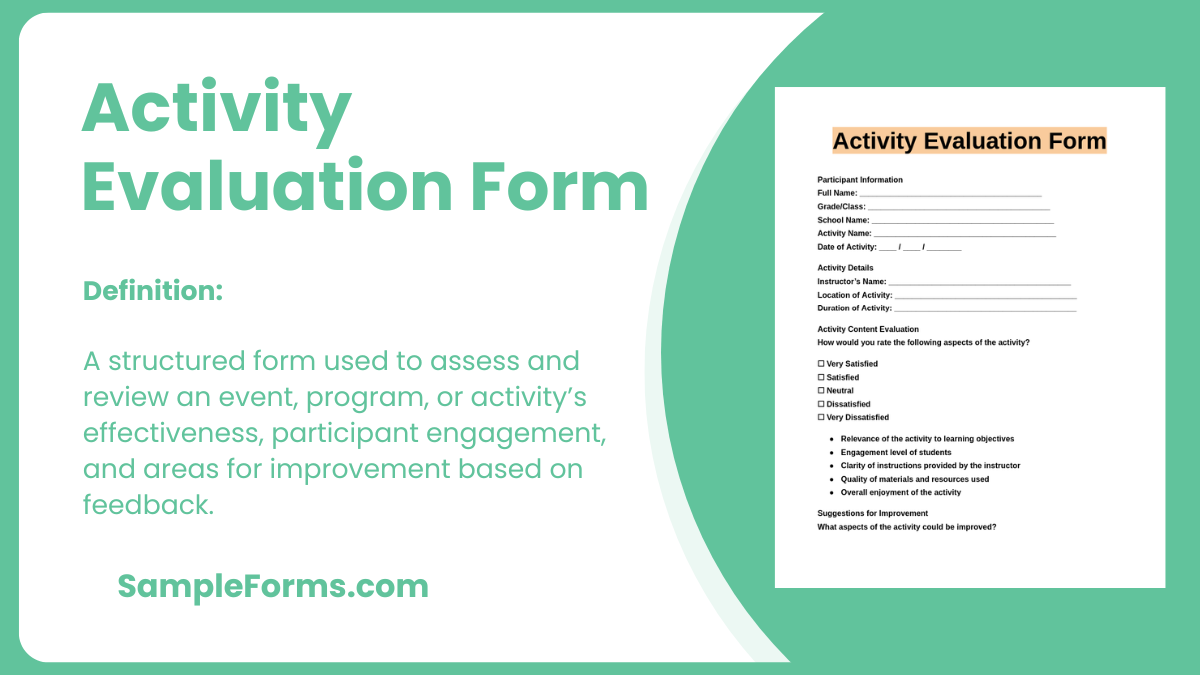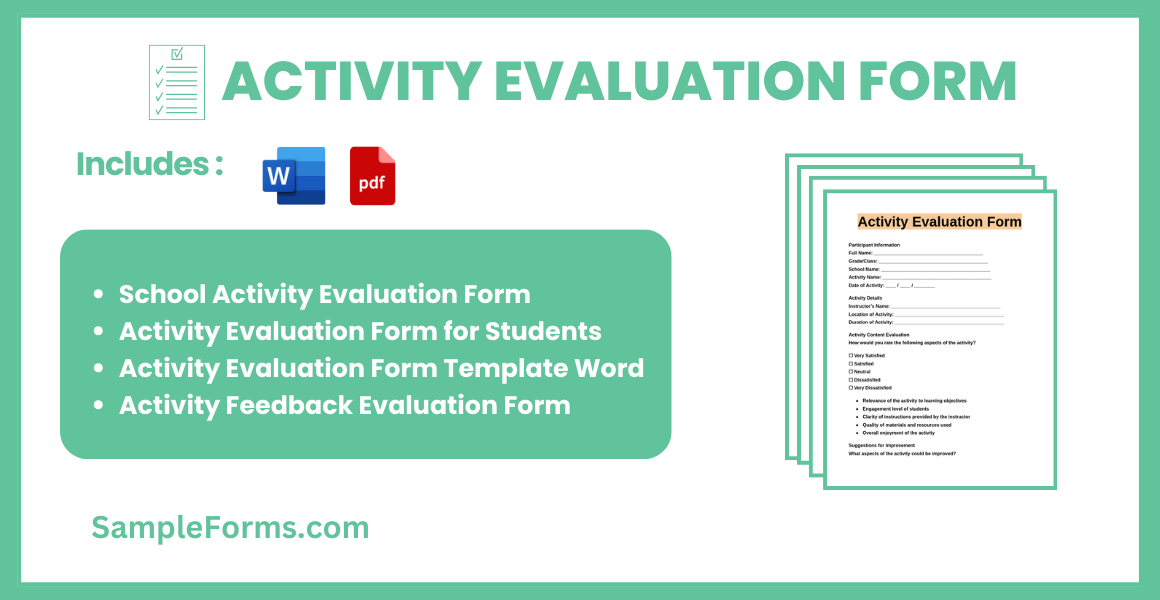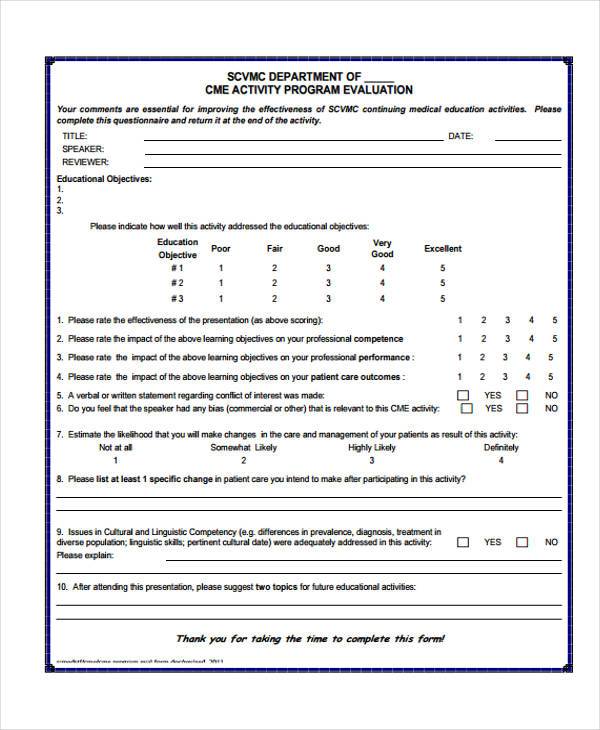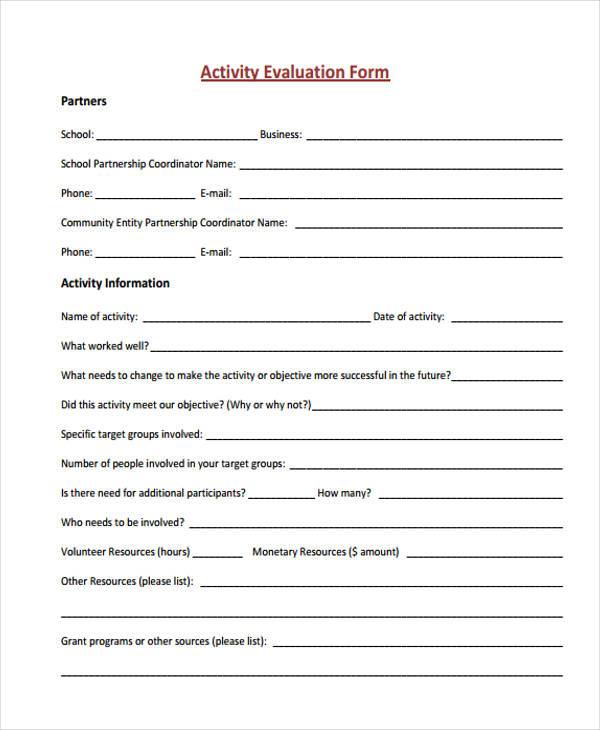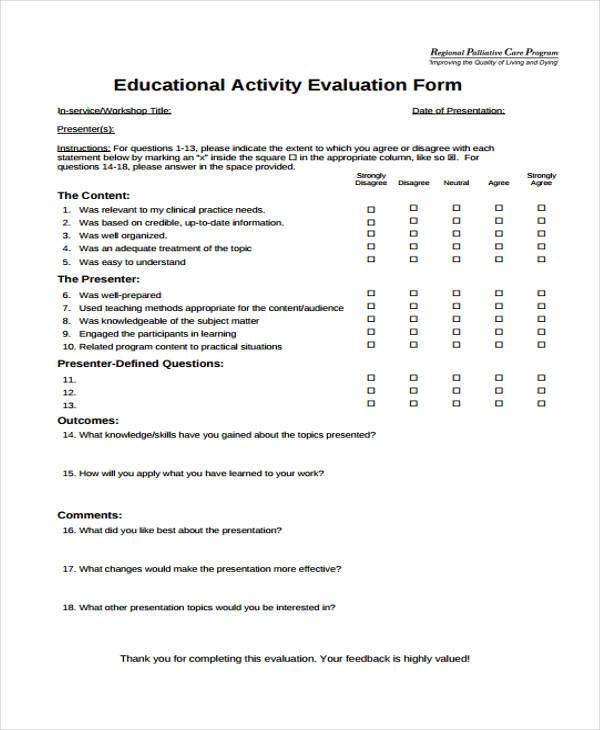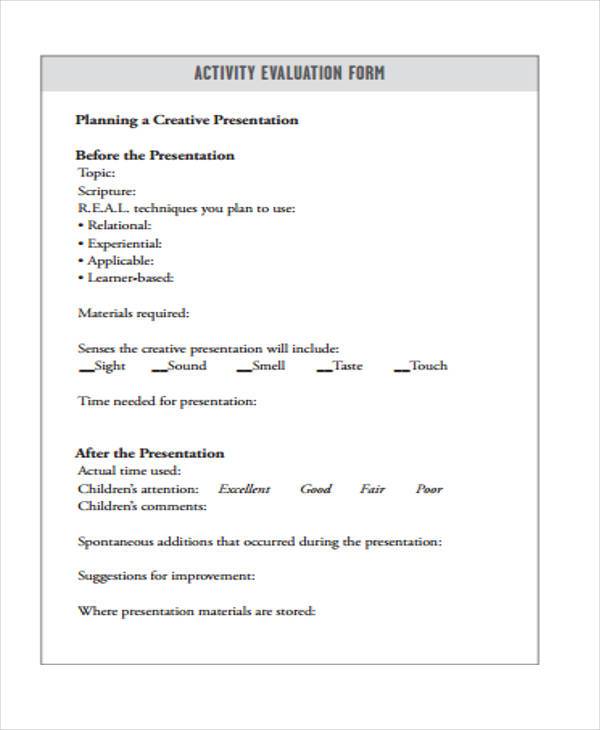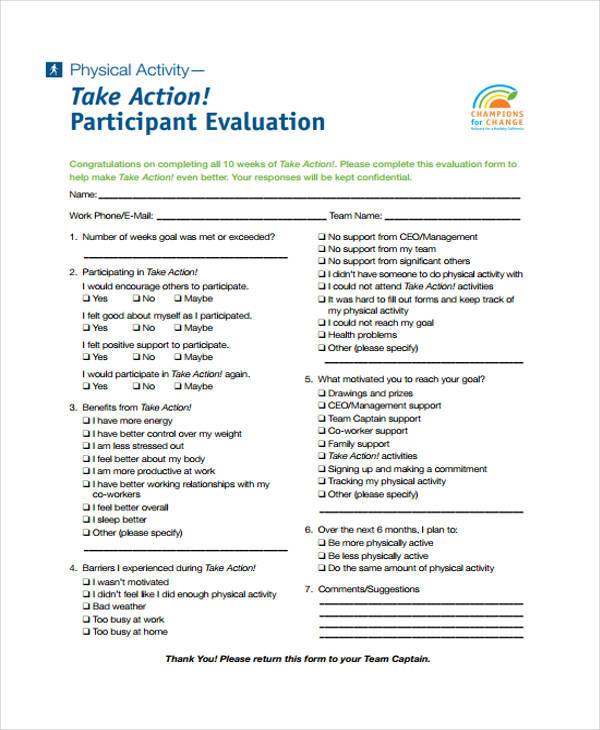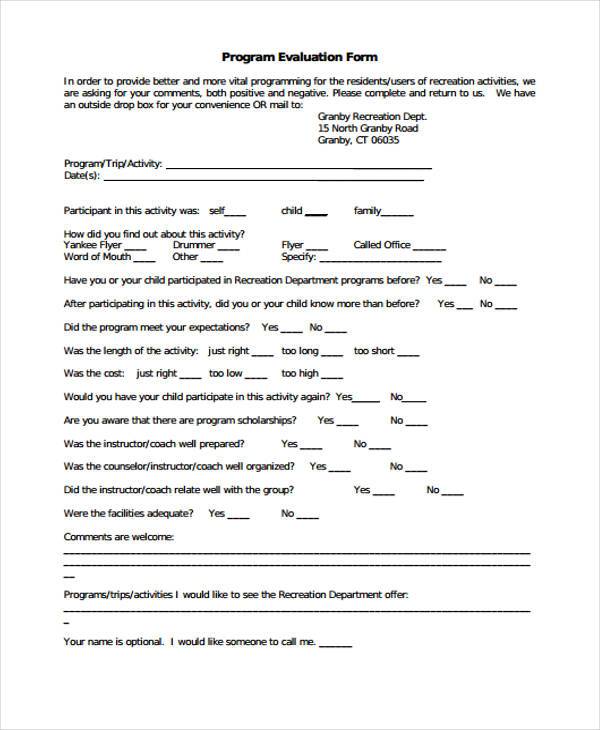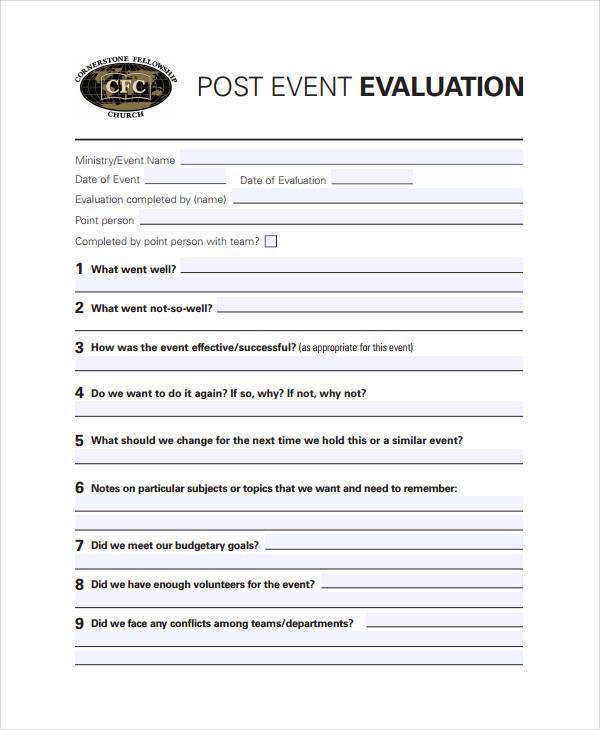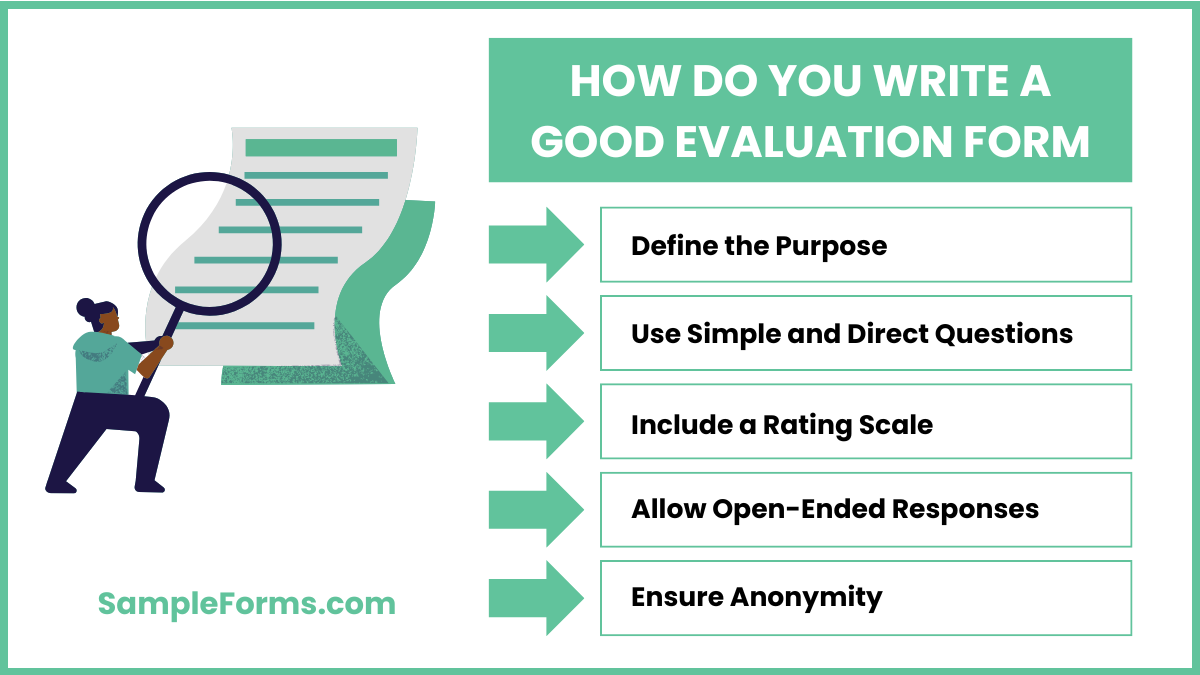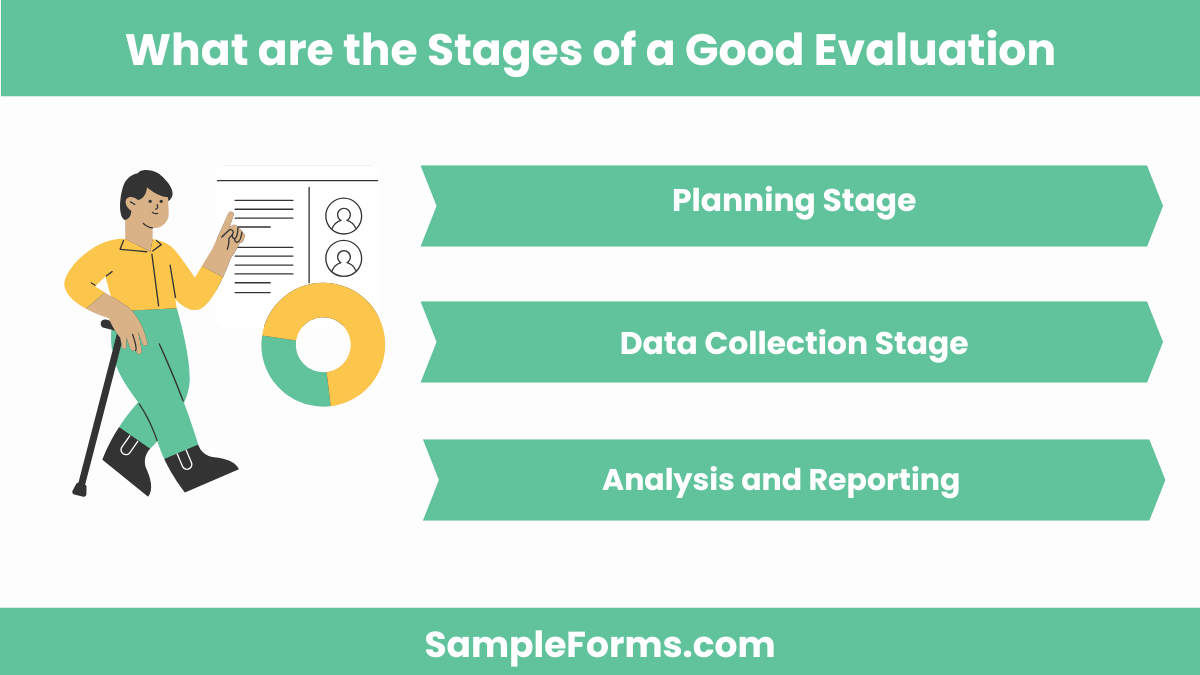An Evaluation Form helps assess the effectiveness of activities by collecting feedback from participants. It identifies strengths, weaknesses, and areas for improvement to enhance future experiences. Whether used in schools, corporate training, or events, a well-structured Evaluation Form ensures valuable insights for better planning. This guide covers the importance of evaluation, key components, and customizable templates for various needs. Learn how to design an effective form, analyze results, and make informed decisions based on participant feedback. Use our professional templates to streamline your evaluation process and optimize future activities for maximum impact.
Download Activity Evaluation Form Bundle
What is Activity Evaluation Form?
An Activity Evaluation Form is a structured document used to collect feedback on events, programs, or activities. It measures participant satisfaction, engagement, and overall effectiveness. This form typically includes questions about content, organization, presenter performance, and suggested improvements. It helps organizers understand what worked well and what needs enhancement for future activities. By analyzing responses, organizations can refine their strategies, ensuring better experiences. A well-designed Activity Evaluation Form simplifies feedback collection and supports continuous improvement in educational, corporate, and community programs.
Activity Evaluation Format
Event Details
Event Name: __________
Date: __________
Location: __________
Organizer Name: __________
Participant Feedback
Overall Experience Rating (Excellent, Good, Fair, Poor): __________
Relevance of Content: __________
Effectiveness of Speaker/Facilitator: __________
Event Organization
Venue Suitability: __________
Time Management: __________
Provided Resources/Materials: __________
Suggestions for Improvement
Positive Aspects: __________
Areas for Improvement: __________
Would You Attend Again? (Yes/No): __________
Evaluator Information
Full Name: __________
Signature: __________
Date: __________
School Activity Evaluation Form
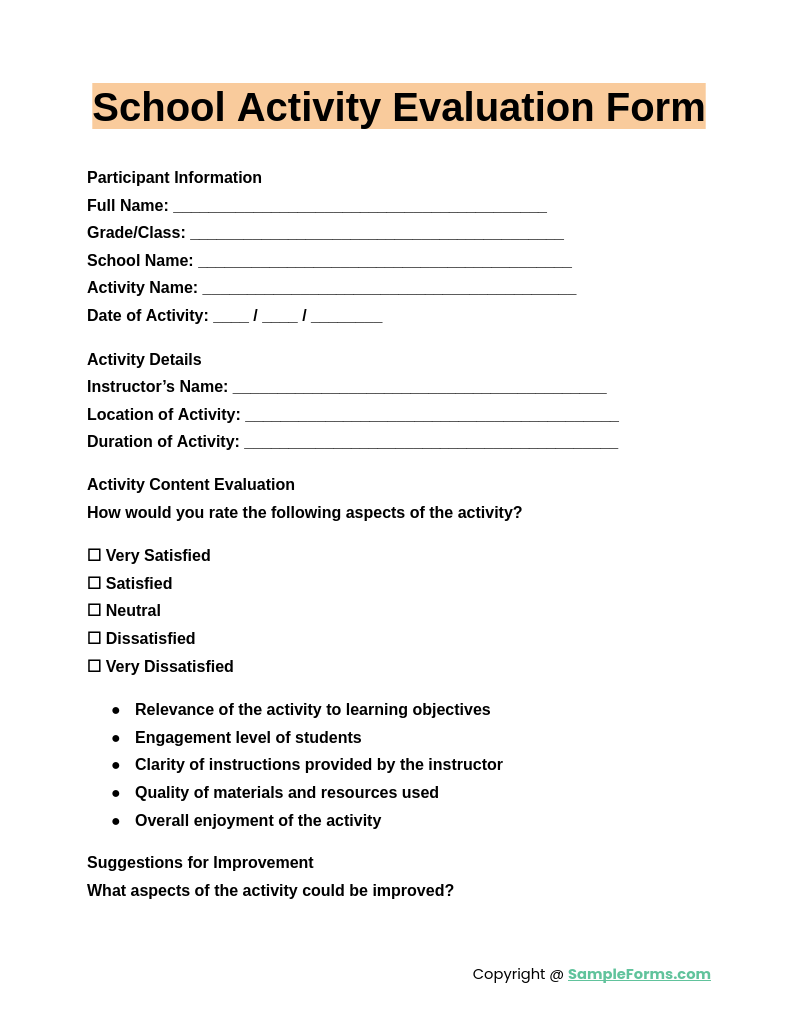
A School Activity Evaluation Form assesses the effectiveness of educational programs and events. Similar to a Training Evaluation Form, it gathers feedback from students and teachers to improve curriculum, engagement levels, and overall learning experiences in academic settings.
Activity Evaluation Form for Students
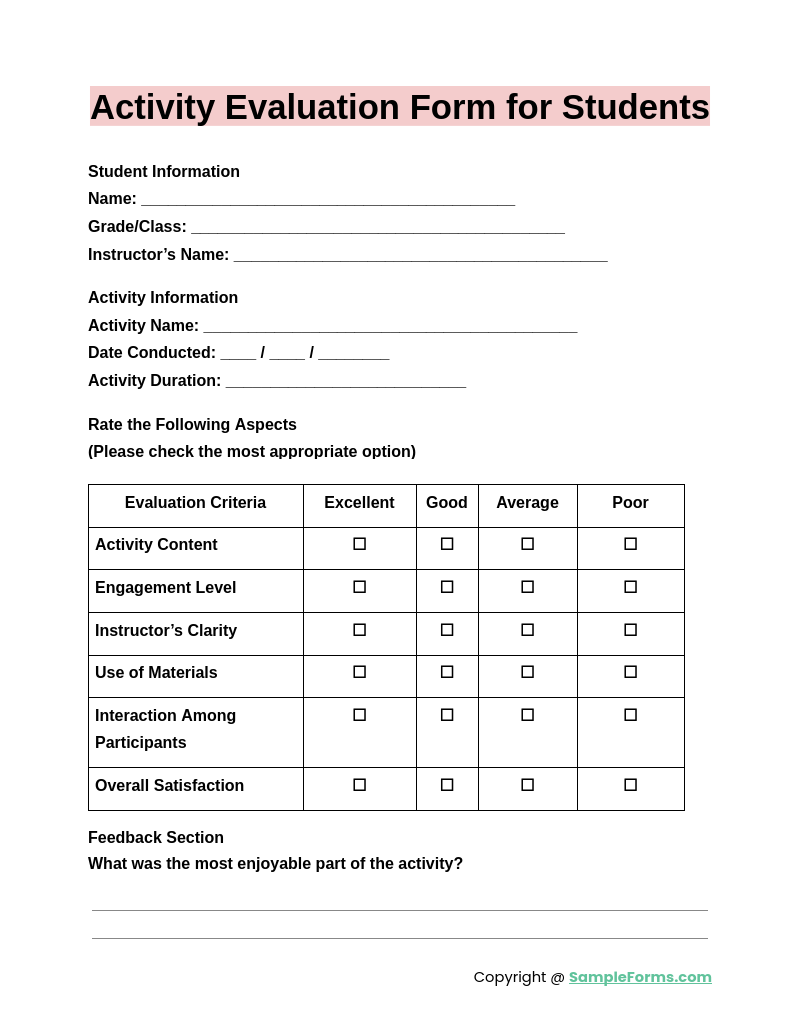
An Activity Evaluation Form for Students helps educators understand student participation and learning outcomes. Like an Employee Self Evaluation Form, it allows individuals to reflect on their experience, highlighting strengths, weaknesses, and areas for improvement in various school activities.
Activity Evaluation Form Template Word
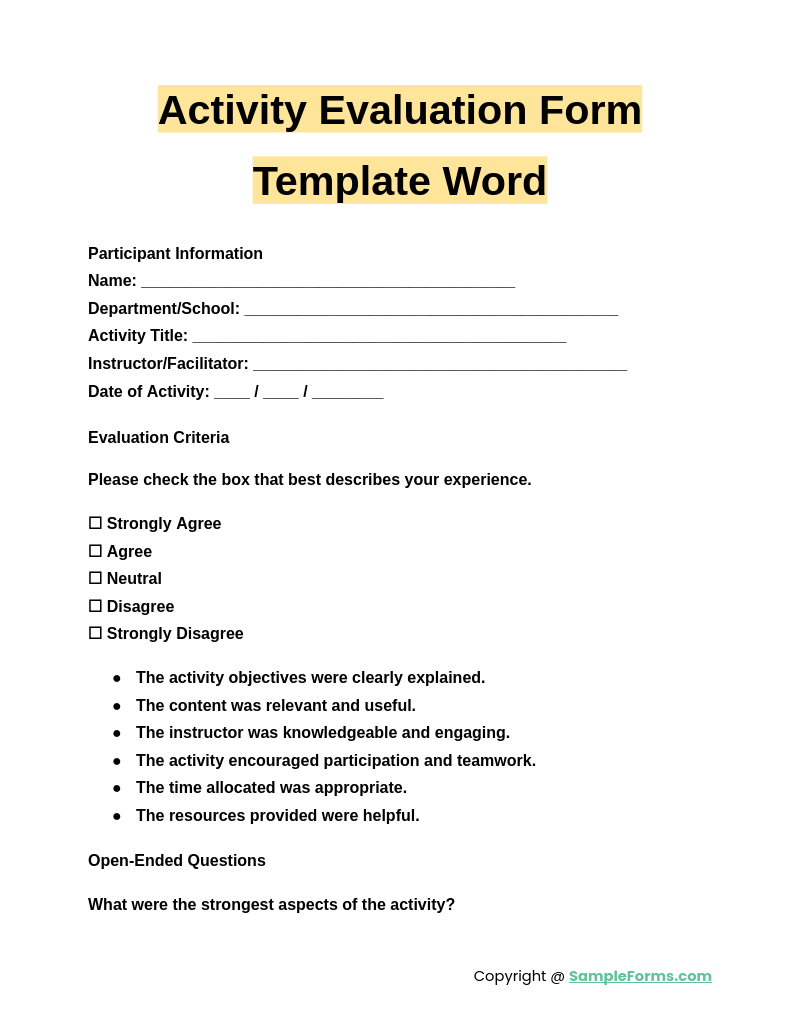
An Activity Evaluation Form Template Word simplifies the process of collecting feedback. Similar to a Peer Evaluation Form, it provides a structured format to analyze performance, engagement, and effectiveness of activities in educational, corporate, and community settings.
Activity Feedback Evaluation Form
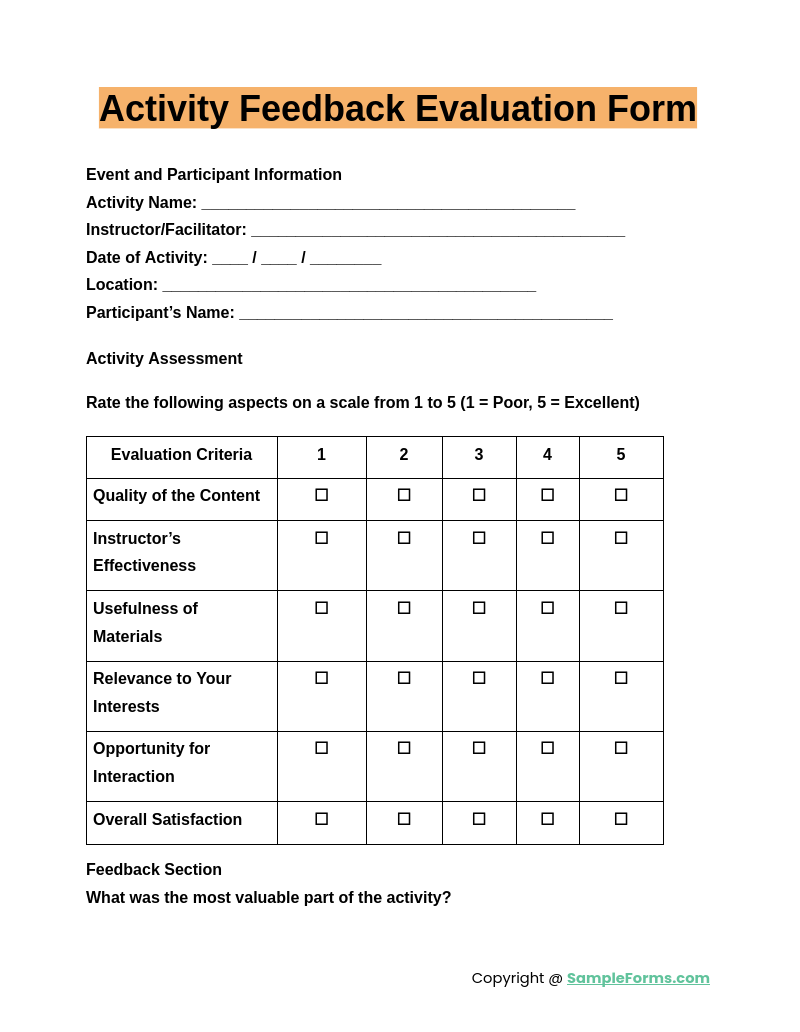
An Activity Feedback Evaluation Form is used to collect participant insights for future improvements. Like a Call Monitoring Evaluation Form, it assesses clarity, organization, and impact, ensuring continuous development of workshops, training, and interactive events.
Browse More Activity Evaluation Forms
Activity Program Evaluation Form
Sample School Activity Evaluation Form
Student Activity Evaluation Form
Activity Evaluation Form Example
Children’s Activity Evaluation Form
Physical Activity Evaluation Form
Activity Program Evaluation Form
Post Activity Evaluation Form Sample
How do you write a good evaluation form?
A well-structured Activity Evaluation Form ensures clear and useful feedback. Similar to an Interview Evaluation Form, it must be concise, objective, and user-friendly.
- Define the Purpose – Clearly outline the evaluation’s objective, such as assessing event effectiveness or participant engagement.
- Use Simple and Direct Questions – Avoid complex wording and ensure the questions are easy to understand and answer.
- Include a Rating Scale – Provide numerical or descriptive scales for consistent and measurable feedback.
- Allow Open-Ended Responses – Give respondents space to provide additional comments and suggestions.
- Ensure Anonymity (If Needed) – Confidential responses encourage honest and constructive feedback.
How to evaluate a learning activity?
Evaluating a learning activity ensures its effectiveness and relevance. Like a Presentation Evaluation Form, it should focus on content delivery, engagement, and knowledge retention.
- Assess Learning Objectives – Ensure the activity meets its intended educational goals.
- Measure Student Engagement – Evaluate participation levels, discussions, and interaction.
- Collect Feedback from Participants – Use surveys or discussions to gather insights.
- Analyze Knowledge Retention – Conduct quizzes or assessments to check understanding.
- Review Instructor Effectiveness – Evaluate the clarity, expertise, and teaching style of the facilitator.
What are the three strategy evaluation activities?
Strategy evaluation ensures that objectives are met effectively. Similar to a Food Sensory Evaluation Form, it involves structured assessment and analysis.
- Performance Analysis – Compare actual outcomes with planned objectives to measure success.
- External and Internal Review – Examine market trends, competition, and internal operations.
- Corrective Actions – Implement necessary changes to enhance future strategy execution.
What are the main stages of a good evaluation?
A successful evaluation involves three key stages. Similar to a Speech Evaluation Form, it focuses on planning, execution, and assessment.
- Planning Stage – Define goals, establish criteria, and determine evaluation methods.
- Data Collection Stage – Gather qualitative and quantitative feedback from participants.
- Analysis and Reporting – Interpret findings and provide actionable recommendations.
How to give an effective evaluation?
An effective evaluation should be structured and constructive. Like a Supplier Evaluation Form, it must provide clear, actionable insights.
- Be Objective and Specific – Provide fact-based, detailed feedback without personal bias.
- Use Clear Criteria – Set measurable benchmarks for assessment.
- Highlight Strengths and Weaknesses – Balance positive feedback with areas of improvement.
- Encourage Constructive Discussion – Allow feedback recipients to share their perspectives.
- Offer Actionable Suggestions – Provide clear recommendations for future improvements.
What is an example of evaluation?
An Activity Evaluation Form assesses effectiveness. Similar to a Performance Evaluation Form, it measures success, engagement, and improvement areas based on structured feedback and observations.
What should an evaluation plan look like?
An evaluation plan should include clear objectives, criteria, and methods. Like a Vendor Evaluation Form, it outlines key performance indicators, data collection strategies, and assessment timelines.
How do you evaluate an activity?
Evaluate an activity by measuring outcomes, engagement, and participant feedback. A Website Evaluation Form similarly assesses usability, effectiveness, and areas needing improvement.
How to start an evaluation sentence?
Begin an evaluation sentence with objective observations, such as “This activity successfully improved engagement.” Similar to a Home Evaluation Form, it should be structured and data-driven.
How do you write a brief evaluation?
A brief evaluation summarizes effectiveness, strengths, and weaknesses. Like an Event Evaluation Form, it highlights key takeaways and recommendations for future improvements in a concise format.
What is evaluation in simple words?
Evaluation is assessing effectiveness based on feedback and results. Similar to a Product Evaluation Form, it helps identify strengths, weaknesses, and areas for enhancement.
What is an example of an assessment activity?
An assessment activity includes surveys, tests, or reviews. Like a Volleyball Evaluation Form, it measures skills, performance, and participation using structured criteria.
What are the confidence phrases for performance review?
Confidence phrases include “demonstrates leadership,” “exceeds expectations,” and “strong problem-solving skills.” Similar to a Group Evaluation Form, they highlight contributions and strengths.
What makes a successful evaluation?
A successful evaluation is objective, data-driven, and actionable. Like an Instructor Evaluation Form, it provides clear insights to improve performance and effectiveness.
What is a good sentence for evaluation?
“A thorough analysis of the event revealed key strengths and areas for growth.” Like a Leadership Evaluation Form, it offers constructive and balanced feedback.
A properly structured School Evaluation Form ensures meaningful feedback collection, helping educators, trainers, and event organizers improve their programs. By using Sample Forms, evaluations become more efficient and data-driven. Collecting and analyzing feedback enables informed decision-making and program enhancements. Whether assessing a school activity, training session, or public event, having a well-crafted form ensures clear insights into participant experiences. Use professionally designed evaluation templates to streamline your review process and optimize future activities effectively.
Related Posts
-
FREE 6+ Business Credit Checklist Forms in PDF
-
Employee Pay Increase Form
-
Chef Evaluation Form
-
FREE 8+ Kitchen Evaluation Forms in PDF | MS Word
-
Customer Service Evaluation Form
-
FREE 15+ Grant Evaluation Forms in PDF | MS Word
-
FREE 14+ Volunteer Evaluation Forms in PDF
-
Mentee Evaluation Form
-
Speaker Evaluation Form
-
FREE 14+ Vehicle Evaluation Forms in PDF
-
FREE 14+ Trainee Evaluation Forms in MS Word | PDF
-
Resume Evaluation Form
-
FREE 14+ Retreat Evaluation Forms in PDF
-
Debate Evaluation Form
-
FREE 14+ Book Evaluation Forms in PDF | MS Word
